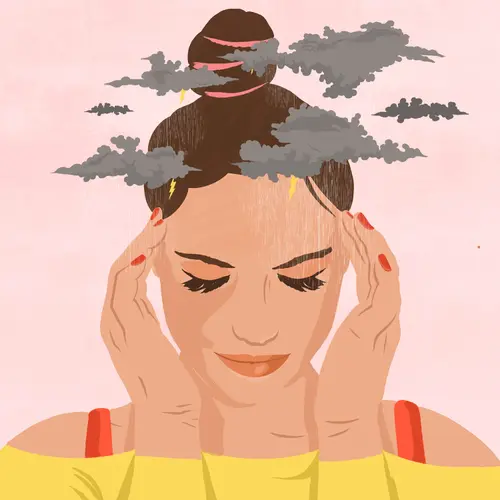When you have yet another migraine headache -- with a throbbing head and nausea -- you may wonder if you'll ever be free of them.
Some people who get migraines do see their symptoms go away over time. Doctors don't fully understand what causes migraines, so there's no step-by-step plan to make them stop. But it is possible to go into remission (stop having migraines).
What Is Remission?
If you get migraines, you may have them several times a month or even daily in some cases. If you have them at least 15 days a month, you have chronic migraine. If you have fewer than 15 a month but more than one a year, you have occasional migraine. For some, these attacks can go into either partial or full remission:
- Partial remission happens when people with chronic migraine suddenly get fewer of them. If you have one 10 days or less a month instead of 15 days, your doctor may say your chronic migraine has gone into remission.
- Full remission happens when people with occasional migraine go an entire year without one.
Causes of Remission
Doctors don't know why some people with migraines go into remission. But research shows that certain things can make it more likely:
- Age: The number of migraine attacks you have each month is likely to drop over time. This is true for people 40 and older. Among women, a drop in hormone levels after menopause may be a factor.
- Being a man: Men are less likely to have migraines overall. But men who get them are more likely than women to go into remission.
- Your reaction to touch: Some people who get migraines become so sensitive to touch during an attack that feeling their clothing against their skin or someone lightly brushing against their shoulder is uncomfortable or even painful. If this doesn't happen when you have a migraine, you're more likely to go into remission.
- Number of headaches per month:
Studies show that if you have chronic migraine, you're more likely to go into partial remission if you have fewer attacks. That means closer to 15 a month than to 30.
Some research suggests that drugs that treat migraines don't lead to remission. But they can make symptoms milder and attacks less frequent. So they can be useful in helping control migraines, even if they don't stop them.
In the future, researchers may study whether any drugs can help lower the number of monthly attacks to the point of remission.

